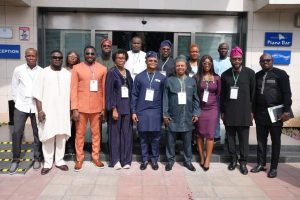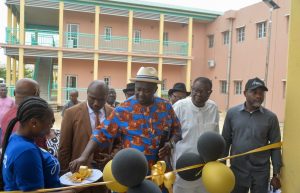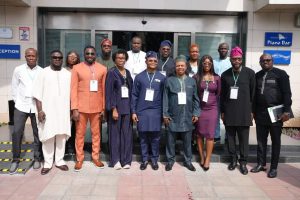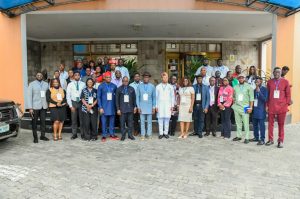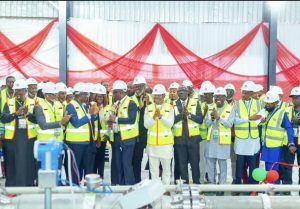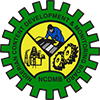 The Federal Government has charged indigenous oil producers to grow their contribution to the national crude oil basket from the current 10 percent to 30 percent within the next five years. The Minister of State for Petroleum Resources, Dr. Emmanuel Ibe Kachikwu set the target at the closing ceremony of the Nigerian International Petroleum Summit (NIPS) held in Abuja last week.
The Federal Government has charged indigenous oil producers to grow their contribution to the national crude oil basket from the current 10 percent to 30 percent within the next five years. The Minister of State for Petroleum Resources, Dr. Emmanuel Ibe Kachikwu set the target at the closing ceremony of the Nigerian International Petroleum Summit (NIPS) held in Abuja last week.
According to him, the nation aspires to pump of 2.5 million barrels of crude oil per day by 2023 and the expectation is that indigenous producers will contribute about 25 or 30 percent of the projected volume.
He also announced that he had directed the Nigerian Content Development and Monitoring Board (NCDMB) to pursue a strategic plan that will ensure that a Floating Production Storage and Offloading (FPSO) vessel is constructed 100 percent in-country within the next 10 years. He acknowledged that a lot of progress was recorded in this regard with the Total Exploration and Production’s Egina FPSO, hence the next level was to achieve 100 percent manufacture in Nigeria, so as to create more employment opportunities, retain spend and domicile technology.
Another strategy that will deepen Local Content in the country according to the Minister is “Project 100” whereby “the Federal Government will identify critical 100 companies that are in the background offering services but do not have the capital to expand and buy the latest technologies and skills. We will work with big oil companies to help provide guaranteed work and financial support for them to grow.”
Kachikwu also reiterated his call for operating companies to lower their cost of producing crude oil, cautioning that government might be forced to stop production from expensive fields. He said, “I will hate to take a costly barrel to the market when I have a cheap barrel. So everybody needs to drive down cost to the $15 concept we have set as the ideal cost of producing oil in this country and not $22 or $23. Two companies have met that and I will like to get other companies to do same. There will be incentives both in terms of access to the market and willingness to produce and incentives in terms of what we are going to give to any company that is the least cost producer.”
He also revealed that Nigeria was targeting about $100 billion investment in the petroleum sector, though the Federal Government had already sealed deals in excess of $40 billion that would start coming in the nearest future. The committed investments include the Zabazaba deepwater project being promoted by the Nigerian Agip Exploration Limited (NAE) in partnership with Shell Nigeria Exploration and Production Company (SNEPCo) and the Bonga South West Aparo (BSWA) deepwater project also developed by SNEPCo.
Vice President Yemi Osibanjo who closed the summit noted that the event had created a platform to examine issues facing the oil and gas industry in Africa.
He emphasized that the Federal Government was determined to remove all encumbrances to the efficient conduct of oil and gas businesses.
Earlier, the Executive Secretary NCDMB, Engr. Simbi Kesiye Wabote, who was the lead discussant in the panel session captioned, “Local Content and Environmental Issues” had pointed out that the country currently faced a myriad of environmental challenges, including deforestation in the northern part of the country, oil spillage and destruction of aquatic life in parts of the Niger Delta region and loss of natural habitat. He argued that environmental challenges facing communities and individuals contributed to the security problems being experienced in some parts of the country. He further canvassed that Government and stakeholders of the oil industry and other key sectors should urgently implement Local Content Policies in a bid to create industrial activities and employment opportunities for teeming youths of the country whose environments had been impacted negatively.
The four day summit drew participants from several countries, within and outside the African continent and recorded over 1,000 delegates, exhibitors and visitors.
Discover more from Nigerian Content Development & Monitoring Board
Subscribe to get the latest posts sent to your email.

